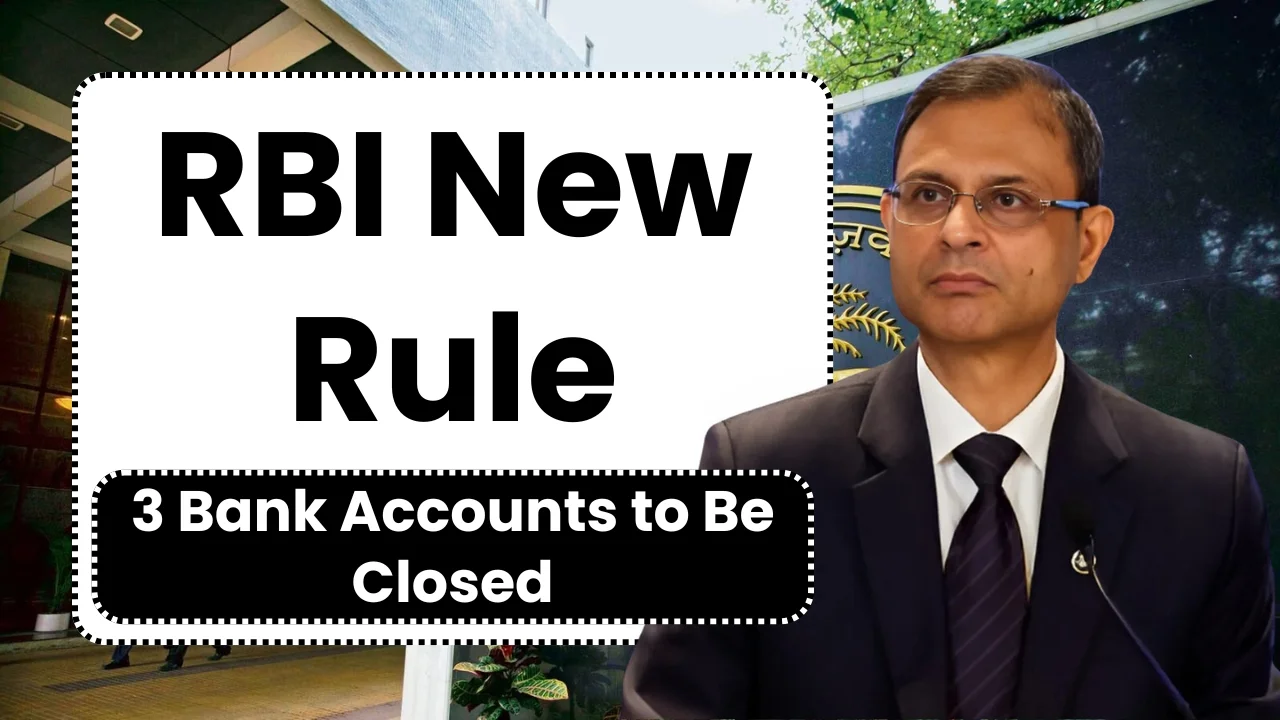A massive change is coming for bank account holders across India. The Reserve Bank of India (RBI) has issued a new rule effective from January 1, 2025, that could impact crores of customers. Under this RBI new rule, three specific types of bank accounts will be closed permanently if customers fail to take timely action.
Whether you use your bank account regularly or not, this update is crucial. The RBI’s move aims to improve banking security, prevent fraud, and promote digitalization. If your account falls into any of the categories below, you need to act fast.
Also Read: GST on UPI Transactions: Is the Government Really Charging Tax on Payments Over ₹2,000? Here’s the Truth
What Is the New RBI Rule?
The RBI new rule will lead to the closure of:
- Dormant Accounts
- Inactive Accounts
- Zero Balance Accounts
These categories have been identified as high-risk due to inactivity, potential misuse, and non-compliance with banking norms. The RBI’s objective is to streamline the system and enhance account security.
1. Dormant Accounts: Most Vulnerable to Closure
A dormant account is one in which no transactions have been made for two consecutive years. Such accounts are often forgotten by users and are prime targets for cyber fraud and hacking.
Action Required:
- Make at least one financial or non-financial transaction.
- Visit your bank or use online banking to reactivate your account.
If you do nothing, your dormant account could be permanently closed after January 1, 2025.
2. Inactive Accounts: A Step Before Dormancy
Inactive accounts are those where there has been no customer-initiated activity for 12 months or more. These accounts are also vulnerable to fraudulent use, especially when linked to outdated or unverified KYC details.
Action Required:
- Log into internet banking or mobile banking.
- Transfer even a small amount to or from your account.
- Update your KYC documents, if necessary.
RBI’s new rule mandates closure of such accounts if there’s no corrective action.
3. Zero Balance Accounts: No More Free Rides
Zero balance accounts that have been left idle with no balance or activity for extended periods will be shut down automatically. While these accounts are often opened for subsidy credits or basic banking access, many go unused after some time.
Also Read: RBI New Rule 2025: Massive Cash Transaction Shakeup! Are You Compliant or at Risk?
Why This Rule Matters:
- Zero balance accounts can be exploited for illegal activities.
- Helps banks reduce operational risks and comply with KYC norms.
Action Required:
- Deposit a small amount to maintain minimum balance.
- Perform a transaction to keep it active.
Why RBI Introduced This New Rule
The RBI new rule is not just a regulatory update—it’s a part of a broader mission to:
- Promote digital banking and reduce dependency on cash
- Prevent financial frauds and cybercrime risks
- Improve transparency and compliance with KYC regulations
- Ensure that only genuine, actively used accounts remain in the banking system
With rising instances of data breaches, online scams, and dormant account misuse, the RBI is tightening controls to secure customer funds and improve system integrity.
What Should Account Holders Do Now?
Here’s a checklist to avoid your account getting closed under the new rule:
Check Account Activity: Log into your account and verify your last transaction date.
Make a Transaction: Even a balance check or UPI payment counts.
Maintain a Balance: Keep your account funded with at least the required minimum amount.
Update KYC Details: Use your bank’s mobile app or visit a branch.
Avoid Using Multiple Idle Accounts: Keep only the necessary accounts active.
Also Read: New Gold Loan Rules 2025: RBI’s Shocking Changes You Need to Know—More Money, Less Hassle!
Final Words: Don’t Wait Till the Deadline
The RBI new rule is a major shift in India’s banking system starting January 1, 2025. Ignoring it could lead to the closure of your bank account and permanent loss of access to your funds.
Whether you have a savings account, salary account, or a Jan Dhan account—take action now to keep it active and compliant.
